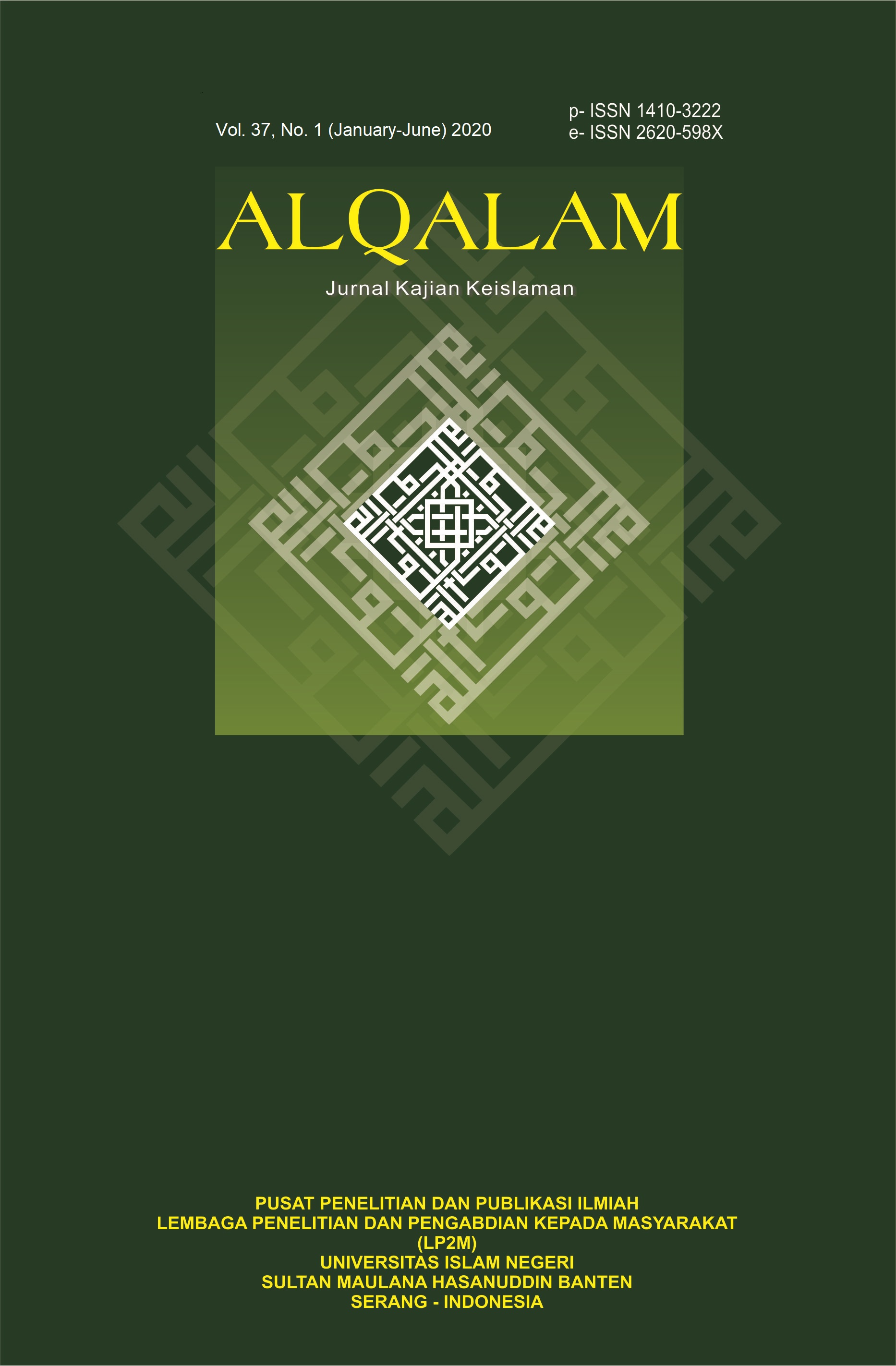An Analytical Evaluation of Fiqh and Science Perspective concerning Hajj: Tarwiyah and Arafat
DOI:
https://doi.org/10.32678/alqalam.v39i1.6098Keywords:
Date Line; Conjunction; Matlak; Mecca; Time Zone.Abstract
Hajj is held in the Zulhijjah where there are Tarwiyah days, Arafat days and Nahar days. These three days in a row fall on the eighth, ninth and tenth of Zulhijjah. These days are very important days for Muslims in performing hajj and the celebration of Eid al-Adha. Therefore, it takes the determination of the beginning of Zulhijjah to determine the fall of the three days, namely Tarwiyah day, Arafat day and Nahar day. But if it turns out that there are problems that underlie the implementation then when is the day of Tarwiyah and Arafat. With a lot of literature, this paper is made to explore, collect, and analyze the existing literature and then draw a conclusion regarding the factors that influence the differences between the fall of Tarwiyah and Arafah days and bring up the solutions given to solve the problem. this. With the debate about when the day of Tarwiyah and Arafah fall, then comes the problem of Tarwiyah and Arafat day where they do not fall together around the world due to differences in the time zones of each region on the earth's surface, differences in the method of determining the beginning of the month, differences in the time of conjunction, the boundary line of the Hijri calendar (month) which is not straight and fluctuates and there are matlak differences. Then this difference can be overcome by creating a unification calendar, following Saudi Arabia, or following the Regional Government.
Downloads
References
Atmanto, N. E. (2017). Implementasi Matlak Wilayatul Hukmi Dalam Penentuan Awal Bulan Kamariah (Perspektif Nahdlatul Ulama dan Muhammadiyah). Jurnal Ilmu Falak.
Bely, A. H. bin, & Ahmad, M. J. A. Bin. (2021). Matlak (al-Mathâli’) Teks, Konteks dan Penerapan. Al-Marshad: Jurnal Astronomi Islam Dan Ilmu-Ilmu Berkaitan. https://doi.org/10.30596/jam.v7i1.6861
Hartono, R. (2019). enentuan Awal Bulan Dzulhijjah dan Puasa Arafah di Mekkah Serta Perbedaannya dengan Indonesia dalam Kajian Ilmu Falak. Ijtihad. https://doi.org/10.15548/ijt.v34i1.5
Hassan-Bello, A. B. (2020). Sharia and Moon Sighting and Calculation examining moon sighting Controversy in Nigeria. Al-Ahkam. https://doi.org/10.21580/ahkam.2020.30.2.5635
Ihsani, M. (2021). KEBERAGAMAN KRITERIA BERBAGAI ORMAS DI INDONESIA DALAM MENENTUKAN HILAL. ELFALAKY. https://doi.org/10.24252/ifk.v5i1.23942
Kemdikbud. (2016). KBBI Daring. In Badan Pengembangan dan Pembinaan Bahasa, Kementerian Pendidikan dan Kebudayaan Republik Indonesi.
Khusurur, M. (2020). PERPADUAN HISAB DAN RUKYAT SEBAGAI METODE PENENTUAN AWAL BULAN HIJRIYAH. Jurnal Al-Wasith : Jurnal Studi Hukum Islam. https://doi.org/10.52802/wst.v5i2.76
Muhammad, R. bin, & Suliaman, I. bin. (2015). Pelaksanaan Ibadah Haji di Zaman Pra Islam (Jahiliyyah) dalam Perspektif Sejarah [Implementation of Hajj in Pre-Islamic Times (Jahiliyyah) in a Historical Perspective]. Jurnal Islam Dan Masyarakat Kontemporari. https://doi.org/10.37231/jimk.2015.11.3.142
Nursodik, N. (2017). Tinjauan Fikih dan Astronomi Kalender Islam Terpadu Jamaluddin ’Abd Ar-Raziq serta Pengaruhnya terhadap Hari Arafah. Al-Manahij: Jurnal Kajian Hukum Islam. https://doi.org/10.24090/mnh.v10i1.922
Nursodik, N. (2018). Kajian Kriteria Hisab Global Turki dan Usulan Kriteria Baru MABIMS dengan Menggunakan Algoritma Jean Meeus. Al-Ahkam. https://doi.org/10.21580/ahkam.2018.18.1.2353
Zaman, Q. (2015). MEMAHAMI MAKNA HILAL MENURUT TAFSIR AL-QUR’AN DAN SAINS. UNIVERSUM. https://doi.org/10.30762/universum.v9i1.78














